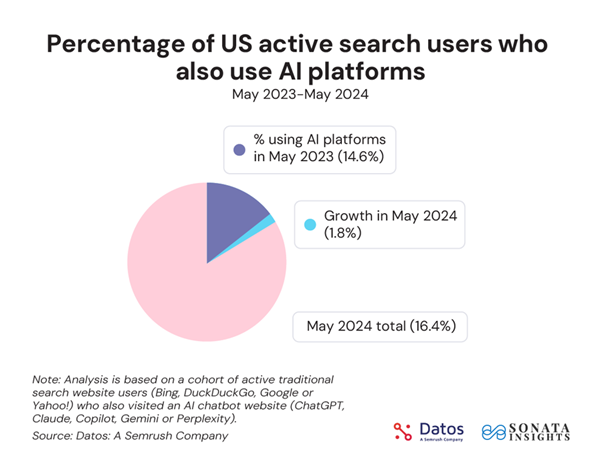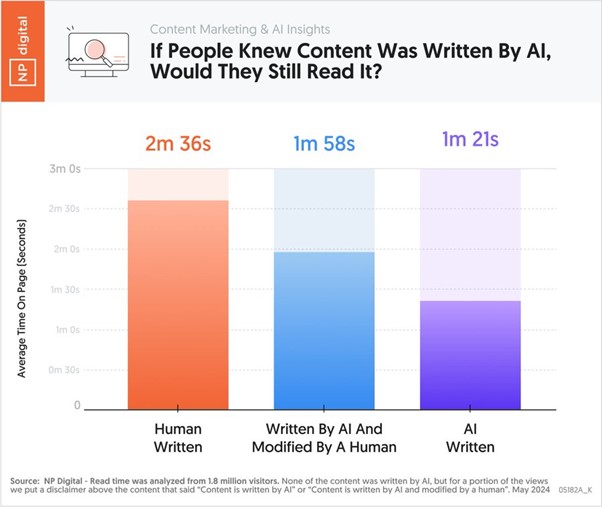Artificial intelligence can either become a competitor or simply a tool that helps generate content optimized for organic traffic. Many specialists awaited the integration of this technological solution, unsure of how it might affect their work and search engine results pages (SERPs), but with fears of its potential impact. Now, we can gradually assess the significance of AI compared to human-created content and determine its real impact and prospects.
The Role of AI-Generated Content in Search Engine Performance
With the release of Gemini, a multimodal language model, Google made significant progress as a response to Microsoft’s ChatGPT. It was immediately clear that Gemini would be integrated into Bard and SGE results, inevitably impacting search engine outcomes and potentially displacing human-created content.
This has important implications for website operators, as they anticipate a rise in “no-click”searches, leading to a loss of traffic. This is because SGE will generate sufficiently detailed answers to users’ queries, eliminating the need to click on links to individual websites. For example, in the U.S., where SGE has been active the longest, it has been observed that websites have experienced traffic losses ranging from 20% to 64%, depending on the domain and industry.
A greater threat has been identified for smaller brands with limited budgets, as Google aims to promote larger brands that can allocate substantial budgets. It is anticipated that this will directly affect those who create informational and editorial content since high-ranking results were only granted to a few major websites, including Reddit.
It has inevitably been discussed that human-created content will find it difficult to compete with AI-generated results, which are presented at the top of the query results. To achieve higher rankings, human-created content will need to meet even higher quality, uniqueness, and thoroughness standards. SEO strategies will need to be even more finely optimized to stand a chance of appearing in AI-generated summaries.
Some, in response to the looming threats, have already started developing strategies to find new opportunities for expanding search. There has been talk about optimizing newer search channels, allowing users to discover content on other platforms such as YouTube, social media, or e-commerce platforms.
Did Expectations Surpass Reality?
Despite various concerns about the potential for drastic changes in search systems, reality turned out to be somewhat different. AI-generated content has not yet surpassed or completely filled search systems.
Human-generated content remains a crucial aspect, offering more uniqueness, emotion, and authenticity. Users still tend to focus more on articles created by humans rather than AI-generated content.
It’s true that these changes have indeed impacted search, but so far, they have not been as significant as expected. According to Semrush, Google remains dominant, and AI search has not had the effect that many anticipated. Retail search trends remain stable, although the rise of AI is being observed.

Based on a study byNeil Patel, it can be highlighted that traffic metrics for an article vary depending on whether it was created by AI or by a human. A specific case showed that traffic for AI-generated content fluctuated, while traffic for human-generated content steadily increased over five months.
Another experiment focused on how users react to and how much time they spend reading materials that were labelled as AI-generated, AI-assisted but modified, or left as human-created product. The results revealed that people spent the most time and showed the highest levels of trust and engagement with human-generated materials.

Final Word
While machine learning systems have not yet replaced human resources, their impact remains significant. No one doubts that AI will continue to advance, bringing even more opportunities for change in the future. Sources: NEILPATEL, Proficio, The Drum, X
